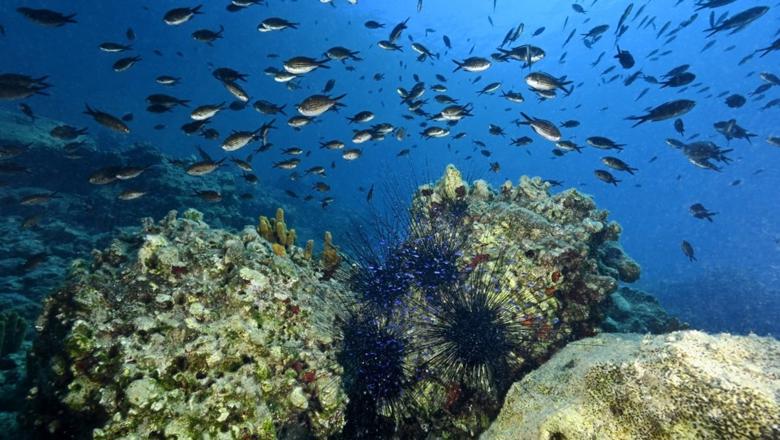For policy to be effective, it needs a clear target to aim at. Without a clear definition of destructive fishing, this target has been absent until now.
Dr Joshua Brian, Department of Geography, King's College London
28 March 2024
New 'destructive fishing' definition to kickstart fresh era in fishing policy
A new working definition of 'destructive fishing' has successfully been drafted following a rigorous consultation process involving 80 fisheries experts from over 30 countries

Many policies and international frameworks – including the UN Sustainable Development Goals - recognise the need to end destructive fishing practices to conserve marine resources, protect the ocean and ensure peace and prosperity for people and the planet.
However, despite its widespread use, “destructive fishing” is currently undefined and therefore immeasurable.
The vagueness of the term has rendered it a quasi-concept, undermining the ability to develop and implement effective solutions, and as the team say they cannot measure progress towards reducing destructive fishing practices without knowing what counts as ‘destructive fishing’.
The working definition, which has been described in a paper published today in Conservation Letters, provides a consensus-led draft for leaders to build upon in international policy discussions, and will meaningfully support countries to prohibit destructive fishing practices.
In addition to Dr Brian, the project team was led by Dr Arlie McCarthy from the University of Oldenburg. The team also included experts from Fauna & Flora International, Brunel University London, BirdLife International, University of Cambridge, and the UN Environment Programme World Conservation Monitoring Centre (UNEP-WCMC).
As part of the process, the team facilitated a consultative, expert-led process which defined destructive fishing as:
Destructive fishing is any fishing practice that causes irrecoverable habitat degradation, or which causes significant adverse environmental impacts, results in long-term declines in target or non-target species beyond biologically safe limits and has negative livelihood impacts.
Hannah Richardson, project lead and Technical Specialist, Destructive Fisheries at Fauna & Flora, said: “Fisheries are fundamental to global food security, but if we want to ensure the future health of fish stocks – and our ocean - we need to avoid fishing methods that are destructive to marine ecosystems and everything living in them.
"This new definition is an incredibly important step forward for the ocean and the sustainable livelihoods of fishers around the world. Without clear guidelines of what destructive fishing is, it is nearly impossible to bring in the international policy or action to address it.”
To form consensus on the working definition, the Delphi technique - an anonymous, iterative process of expert consultation - was used to synthesise the opinions of a range of 80 fisheries experts representing 32 nationalities, including academics, practitioners in NGOs, and those working directly in the fishing industry and associated fields.
Dr Nibedita Mukherjee, Senior Lecturer, Brunel University London, said: “By synthesising expert knowledge from individuals in diverse fishing-related fields, we aimed to understand how a definition might be applied, and propose a starting definition. Developing a definition that all parties can agree on is essential if we are to find solutions and benefits for both people and nature.”
Now that a starting definition has been proposed, the ambition of the project team is to work with policymakers to further develop a consensus-built definition of “destructive fishing” at international policy forums, to encourage adoption of the definition at an international and national level.
The team also aims to pilot approaches to measure the prevalence and magnitude of destructive fishing, through a Monitoring Framework launched in 2023. The framework outlines the types of evidence that could be used to determine whether and how destructive fishing is taking place, providing national governments and the private sector with a crucial tool to identify and mitigate destructive fishing.
Chris McOwen, Lead Marine Scientist at UNEP-WCMC, said: “It is important that we build on the current momentum and continue to work with interested governments and industry to refine the definition, and explore how it can be tailored to meet the context and needs of countries and regions.
"Moving forward we will work to raise awareness on destructive fishing in international discussions and explore how the working definition can be broadened to consider destructive fishing in terms of societal and economic impact.”
The new paper, titled: “Destructive Fishing: an expert-driven definition and exploration of this quasi-concept, has been published in Conservation Letters.

